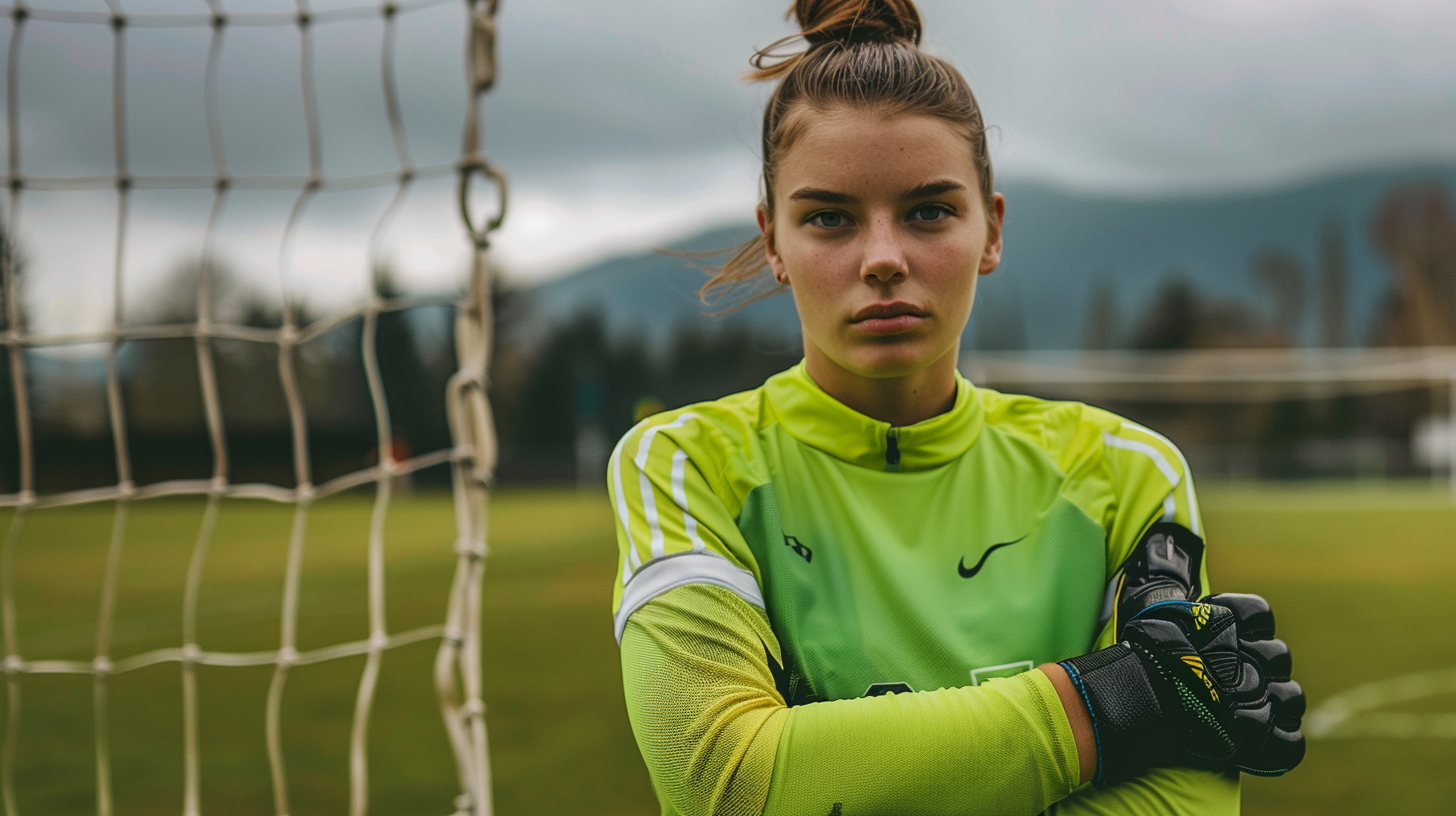5 Mental Mistakes Soccer Goalkeepers Make (And How to Fix Them)

Imagine this: It’s the 89th minute, the game’s tied, and the other team’s top scorer is about to take a shot. You’re the last line of defense—if you stop it, you could be the hero. Mess it up, and it’ll stick with you. Being a soccer goalkeeper is all about handling these huge moments and, honestly, keeping your head on straight.
Being a keeper is mentally tough. If you’re not locked in, even for a second, it can cost your team. After working with a ton of athletes, here are five common mental mistakes goalkeepers make—and most importantly, how to fix them.
1. Letting One Mistake Turn Into More
A lot of keepers mess up once, then can’t shake it off, so it leads to even more mistakes.
What happens: You give up a goal you think you should have saved. Now you’re down on yourself. Next play, you hesitate instead of coming out for the ball, and boom—another goal. It just snowballs.
Why it matters: Some studies showed that after letting in a soft goal, goalies were way more likely to mess up again in the next 15 minutes.
How to fix it: Top keepers have a fast way to reset after mistakes:
- Do something physical (like quickly adjusting your gloves)
- Take a deep breath and let it out slow
- Pick a hype phrase, like “Next play” or “Stay locked in”
Doing this helps you move on and stay present, instead of stewing about that last goal.
2. Losing Focus When the Ball’s Not Near You
Unlike other positions, keepers can go a long time without any action.
What happens: Your team’s attacking, you haven’t seen the ball for ten minutes, then suddenly—counterattack! And you’re not mentally ready.
Why it matters: Research shows goalies react slower after being uninvolved for too long.
How to fix it: Here’s how good keepers stay in the game during slow stretches:
- Keep scanning the field every so often, even when nothing’s happening
- Check your positioning regularly
- Hype yourself up in your head (“Stay ready”)
This keeps you sharp so you never get caught by surprise.
3. Overthinking Penalty Kicks
Few things are more stressful than facing a PK.
What happens: You try to remember every single thing about the kicker—what foot they use, where they normally shoot—and you freeze or guess wrong at the last second.
Why it matters: Goalies who just pick a strategy and go for it actually stop more PKs than ones who overthink.
How to fix it:
- Have a simple pre-penalty routine ready
- Make your decision based on a couple of solid facts, not a million guesses
- Commit. Don't second-guess yourself.
Practice your PK routine in training so penalties feel like something you can handle—no panic.
Unlock Pro-Level Focus & Confidence—Every Game, Every Save
Your personal AI mental coach for soccer goalkeepers. Get pro-level mindset training, bounce back from mistakes, and command your box—anytime, anywhere.
4. Not Communicating Enough
Goalkeepers see the whole field, so you’ve got to speak up.
What happens: You spot a problem but aren’t sure what to say, or you feel awkward yelling so you clam up. The defense misses your warning, and now it’s chaos.
Why it matters: Teams with loud, clear-communicating keepers give up fewer easy goals.
How to fix it:
- Use a few strong, simple calls your teammates know (“Man on!” “Away!”)
- Practice being loud—not just on the field, but even at home or with friends
- Work with your defenders in practice so you’re all on the same page
Get in the habit of talking. Leaders aren’t just born—they practice.
5. Freaking Out in Big Moments
Huge plays—finals, shootouts, crazy saves—can make your nerves go wild.
What happens: Game on the line, your heart’s pounding, your brain’s racing, you get tunnel vision, and you don’t react your best—right when it matters most.
Why it matters: Under big pressure, keepers’ decision-making tanks, and you literally don’t see as much.
How to fix it:
- Work on calming your breathing
- Visualize yourself crushing the big moments
- Flip the script and see these as chances to shine, not just stress-outs
If you can handle the nerves, you’ll make those highlights everyone talks about.
Build Your Mental Game
Everybody makes mistakes—it’s what you do next that matters. The key is learning your own weak spots and working on your mental game just like you do with dives and catches:
- Figure out what triggers you
- Try out strategies that work for your brain
- Fit mental training into your regular practices
- Pay attention to changes over time and tweak if you have to
Why Mental Training Matters for Keepers
For a long time, no one really talked about mental training for goalies. If anybody did, it was just a quick pep talk or a generic one-on-one. But now, thanks to sports psychology and apps, you can get mental training that actually fits your position.
The best training is:
- Made for goalies, not just generic "athlete" advice
- Focused on your specific patterns and habits
- Worked on a little every day
- Tracked so you can see real progress
Ready to Level Up?
If you see yourself making these mistakes, you’re not alone. Every keeper has these problems at some point. The real difference comes from how you handle them.
Want help with your mental game? Check out our AI Mental Coach for Soccer Goalkeepers. It’s made for goalies, with daily tips so you stay sharp on AND off the field.
Built with Olympic-level sport psychologists to help keepers at every level, Mettle gives you:
- Ways to bounce back after mistakes
- Hacks to stay focused all game
- Confidence when the pressure’s on
- Tips to get your defense listening to you